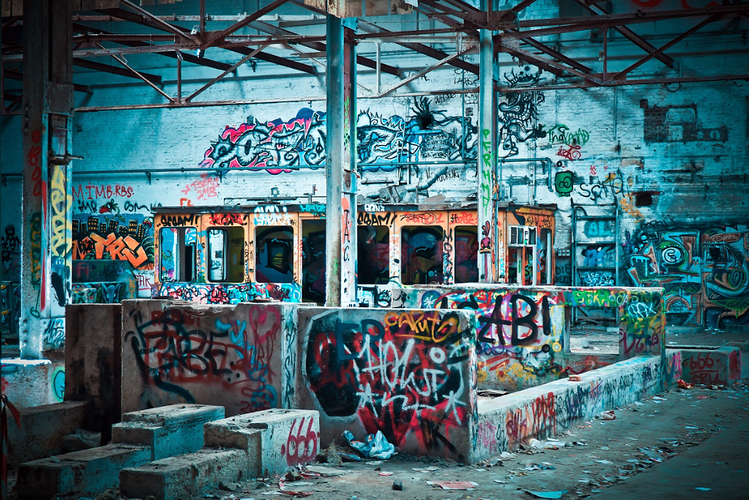At the Stanford University Press blog, poet and literature scholar Jasper Bernes explores how twenty-first century deindustrialization is portray in a poem by San Francisco poet Tongo Eisen-Martin. See below for an excerpt. Bernes is the author of The Work of Art in the Age of Deindustrialization, published this month by Stanford University Press. An excerpt from the book is forthcoming in the May issue of e-flux journal.
Deindustrialization is a process that depends, somewhat paradoxically, upon the industrialization of everything. Seen in terms of total output, there are more factories than ever, even in the US. Seen in terms of employment, though, they are nowhere to be found. Deindustrialization means a fully industrialized world, one that can be heard, by the dispossessed, in every one of the abundant products they must scramble to procure. And this is why, in Eisen-Martin’s poem, the person “washing windows with a will to live” asks and at the same time answers, in response to an unspecified question why, “because in the tin can on my left shoulder / I can hear the engines of deindustrialization?” Those engines are everywhere. They produce the canned goods and power the cars whose windows the speaker of those lines might wash in exchange for a little money. The engines of industry are everywhere but they don’t need workers.
The future of work lies in that poorly paid service sector where, already, growth has begun to taper off, as more and more people drop out of the labor market altogether, getting by through window washing and other hustles. Growth in services was always dependent on decreasing wages and it appears we may have reached the end of that process, a floor below which wages can’t be much further depressed. As for the good jobs, there are fewer of those too, and half of college graduates work in fields that don’t require a degree. What exists in abundance is so-called “guard labor,” protecting the wealthy and their property. This is why, instead of the miners and autoworkers one might expect, “The picket line got cops in it.”
Image via Stanford University Press blog.
